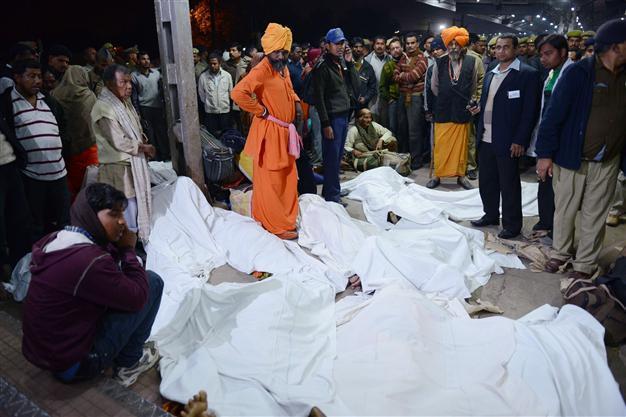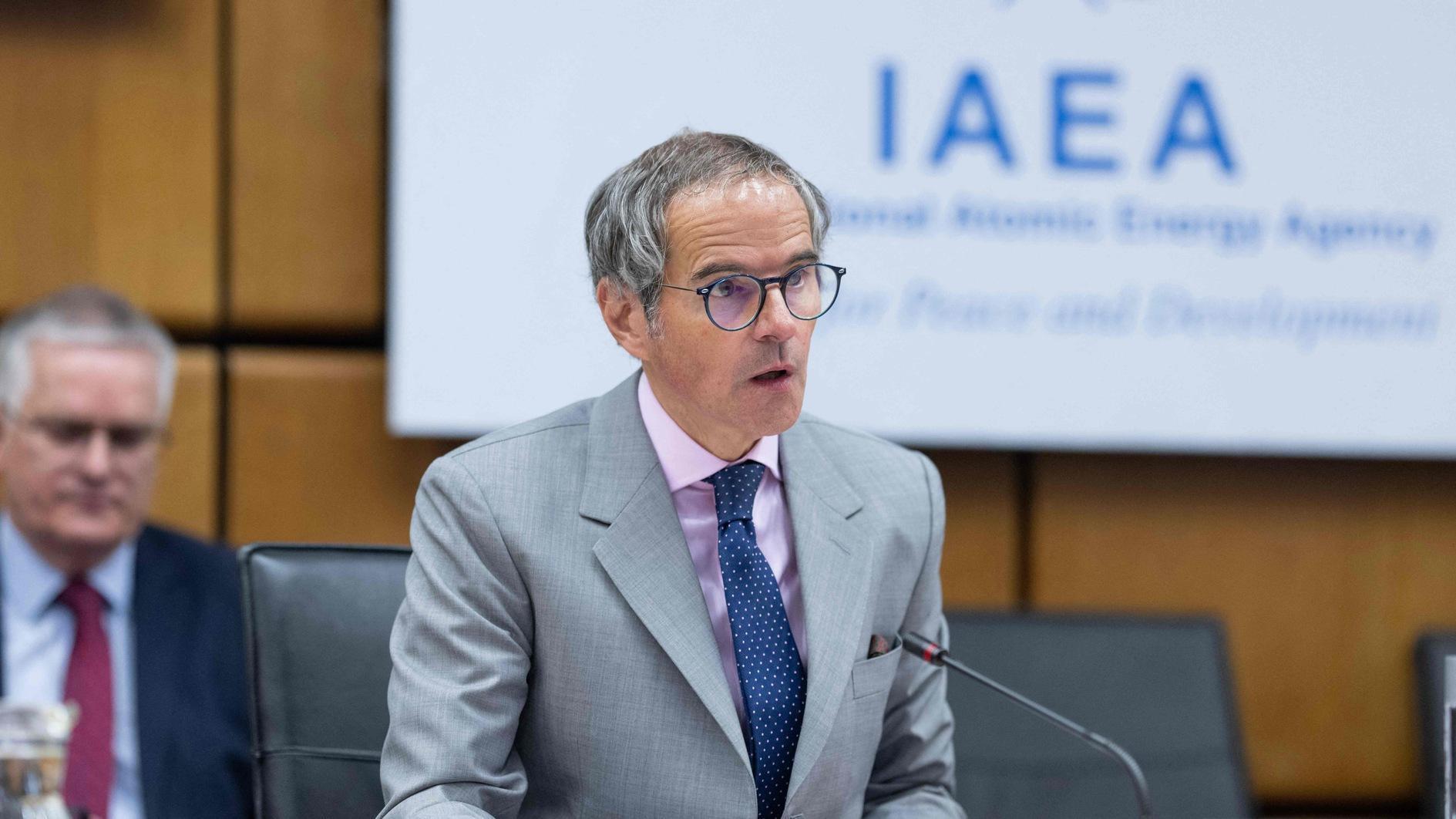36 killed as stampede mars India's Kumbh festival
ALLAHABAD, India - Agence France-Presse

Indian authorities stand among some of the travellers that were killed during a stampede at the railway station in Allahabad, on February 10, 2013. AFP PHOTO / ROBERTO SCHMIDT
A terrifying stampede at a railway station left at least 36 people dead after the main day of India's Kumbh Mela religious festival, which drew record crowds of 30 million, officials said Monday.Dozens more were injured in the crush on Sunday evening at Allahabad, marking a tragic end to the most auspicious day of the 55-day Hindu festival in the northern state of Uttar Pradesh, the world's largest gathering of humanity.
Local officials said the railings on a bridge at the station had given way under the pressure of the mass of people, while witnesses said that police had baton-charged the crowd, triggering panic.
Injured people were stretchered away on ambulances from Allahabad station, but relatives said emergency services took hours to reach the scene. At least 10 corpses wrapped in white sheets could be seen on a platform several hours later.
Among the victims was an eight-year-old girl called Muskaan whose distraught parents said she had died while waiting for help for nearly two hours.
"Our daughter still had a pulse. Had the doctors reached in time she would have been saved, but she died before our eyes," Bedi Lal, the child's father, told the NDTV news channel.
Amit Malviya, a spokesman for the northern and central railway, told AFP on Monday that 20 bodies had been identified and authorities were waiting for relatives to come forward to claim another 16.
Apart from Muskaan, the victims included 26 women and nine men. The oldest was a 75-year-old man, Malviya said.
Hindus believe a dip in the sacred waters of the river Ganges cleanses them of their sins. This year's Mela is enormous even by previous standards, with astrologers saying a planetary alignment seen once every 147 years made it particularly auspicious.
Police had been stretched in controlling the vast crowds as they reached their peak on Sunday, with officials saying the numbers had passed the 30 million mark by the evening.
After the stampede, Indian Prime Minister Manmohan Singh issued a statement saying he was "deeply shocked" while the Chief Minister of Uttar Pradesh Akhilesh Yadav ordered an inquiry.
A spokesman for the state government said the crush began after joints broke on railings attached to the bridge.
"People were taking a rest on these railings and the railings could not take the load," Ashok Sharma, told AFP.
But Railways Minister Pawan Kumar Bansal, who headed to Allahabad after the accident, attributed the crush to sheer weight of number.
"No footover bridge collapsed, no railings collapsed," Bansal told reporters.
"We had provided for colour-coded enclosures to help people travelling in different directions.
"We got to know that there was huge crowd and those (enclosures) were broken down. Many thousands of people climbed the footover bridge. And as you know the consequences when stampedes happen." The Kumbh Mela, which began last month and ends in March, takes place every 12 years in Allahabad while smaller events are held every three years in other locations around India.
In 2003, 45 people died in a stampede during the festival in the western Indian town of Nasik.
Crushes are a constant menace at religious events in India, where policing and crowd control are often inadequate.
The worst recent incident was in October 2008 when around 220 people died near a temple inside a famous fort in the northern city of Jodhpur.
At the Kumbh Mela on Sunday, 30,000 volunteers and 7,000 police were on duty, urging pilgrims to take one short bath and then leave the waters to make space for the flow of humanity that stretched for kilometres.
The event has its origins in Hindu mythology, which describes how a few drops of the nectar of immortality fell on the four places that host the festival -- Allahabad, Nasik, Ujjain and Haridwar.
















